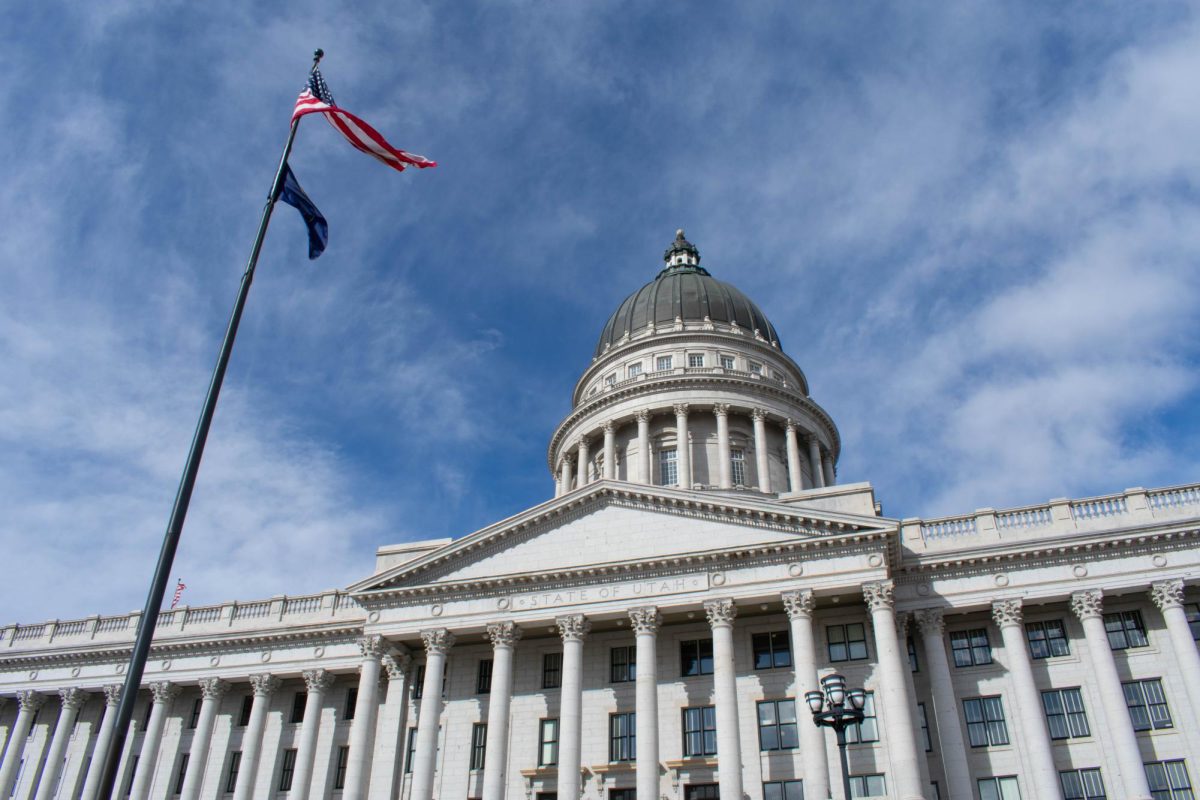As 2024 quickly comes to an end, Utah’s 66th legislature is gearing up for the 2025 general session. Four representatives from the Utah Legislature gave Utahns a look at the upcoming session and explained what they can expect to see discussed on the floor during a legislative preview luncheon on Nov. 12.
According to the legislature’s website, the top three subjects with the most proposed bills are health and human services (156), education (146) and government operations (136). During the luncheon, the representatives also discussed policy changes for the 2034 Olympics, higher education funding and bills they personally plan to champion.
Utah’s House and Senate are made up of 104 community members from across the state. Republicans have a supermajority in both the House and Senate. However, Rep. Casey Snider, the majority assistant whip from District Five, said that this doesn’t keep the legislature from working as a team.
“There’s this narrative that has sort of unfolded the last several years. You can’t like each other, you cannot have a friendship or any sort of relationship because of political differences. And I think that’s the stupidest notion that exists,” Snider said.
Health and Human Services
The health and human services category has the most proposed bills out of any subject to be discussed during the 2025 general session. Some topics that fall under this category are healthcare, mental health services and disability.
Rep. Jennifer Dailey-Provost, the minority whip from District 22, expressed her passion for public health, stating that in her opinion, every policy is a public health policy.
“There’s nothing that we do that in one way or another does not affect the health and well-being of the humans that live in this state,” she said.
Explanations or text for the 156 health and human services bills are currently unavailable. However, Dailey-Provost did bring up a bill she spearheaded that addresses the intersection of public safety and mental health crises. The bill would provide support to those in mental health crises with services that are separate from the police or other public safety personnel.
Higher Education
Higher education and potential cuts to its funding were also among the topics discussed during the panel.
In Oct., House Speaker Mike Schultz suggested that Utah’s Universities prepare for 10% budget cuts before the 2025 general session.
Sen. Jerry Stevenson from District 6 said that these cuts will hit Utah’s smaller universities the hardest and that if budget cuts are necessary, they should be strategic.
“[Small universities] will end up cutting programs, maybe very necessary programs, in order to balance budgets,” Stevenson said. “… Maybe what we need to be looking at is more surgical cuts. If cuts are necessary, let’s do them surgically. Let’s do them in conjunction with the people on those campuses so we know what they are.”
Dailey-Provost said that she expects government operations and elections to be the most controversial topics during the 2025 general session, along with the “complicated relationship” between Utah’s legislative and judicial branches.
Dailey-Provost referenced the multiple constitutional amendments, Amendment A and Amendment D, that appeared on the Nov. 5 ballot but were made void by Utah’s judiciary.
“Those are important issues, and I look forward to those discussions. What I worry about is that we’re going to lose bandwidth and opportunity to do a lot of other really hard and important things. And so I hope we can tackle those complex issues but not get so lost in them that that’s the only thing we end up talking about for the 45 days of session,” Dailey-Provost said.
Olympic Changes
Since Utah won the bid for the 2034 Winter Olympic Games, figuring out Utah’s plan to prepare for the games has become a hot topic for Utah’s legislature. All four legislators at the luncheon agreed that hosting the Olympics would allow Utah to invest in its infrastructure.
Sen. Luz Escamilla from District 10 pointed out that the Olympics serve as an opportunity to invest in Utah’s public transportation and roads and address Utah’s housing before the games.
Snider said that even though the Olympics is such an important event for Salt Lake City, the games only last two weeks and that investments in infrastructure should be helpful in the long term.
“Infrastructure, public transportation, roads and facilities should be here for the benefit of this state, regardless of whether or not there’s an event here,” Snider said.
The 2025 legislative session begins on Jan. 21 and concludes on March 7. During those 45 days, both legislative chambers will propose, discuss and vote on new bills.





Andrew Watt • Nov 22, 2024 at 9:05 am
Disappointing not to see anything regarding air pollution issues, which cost the people of Utah $1.8B per year in healthcare related expense. This is and has been a major healthcare issue for the people of Utah for over 20 years.